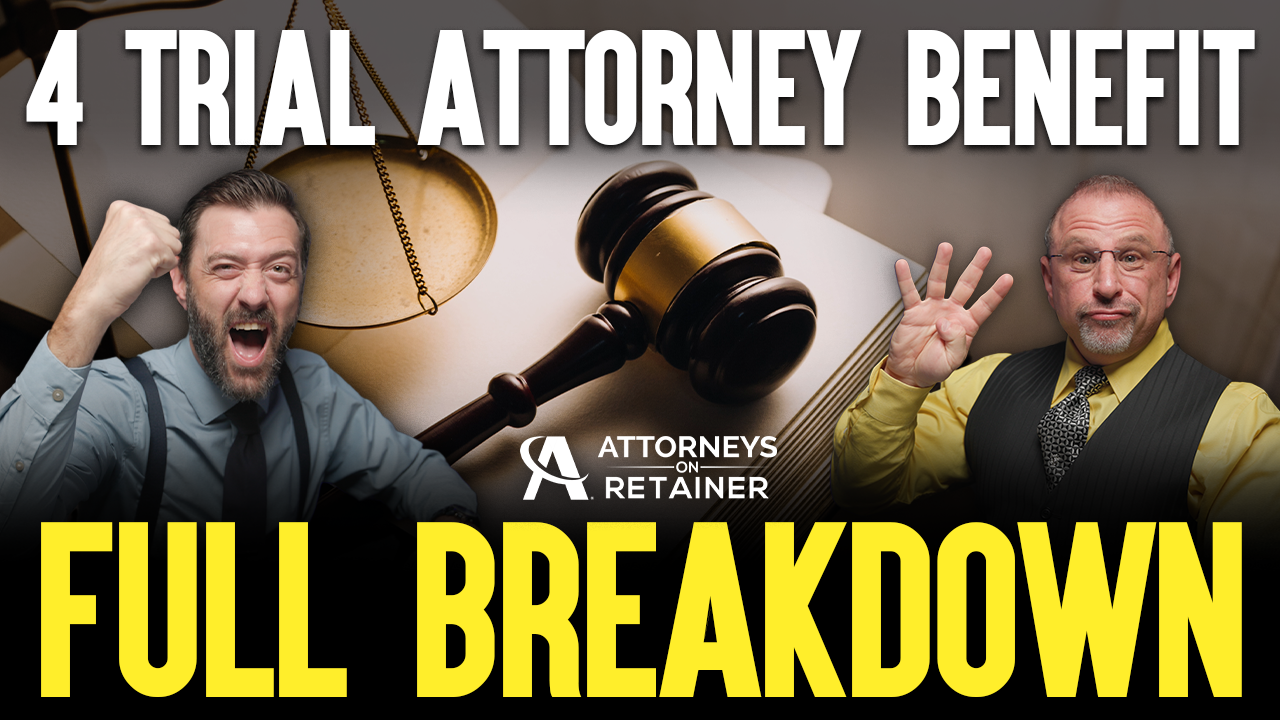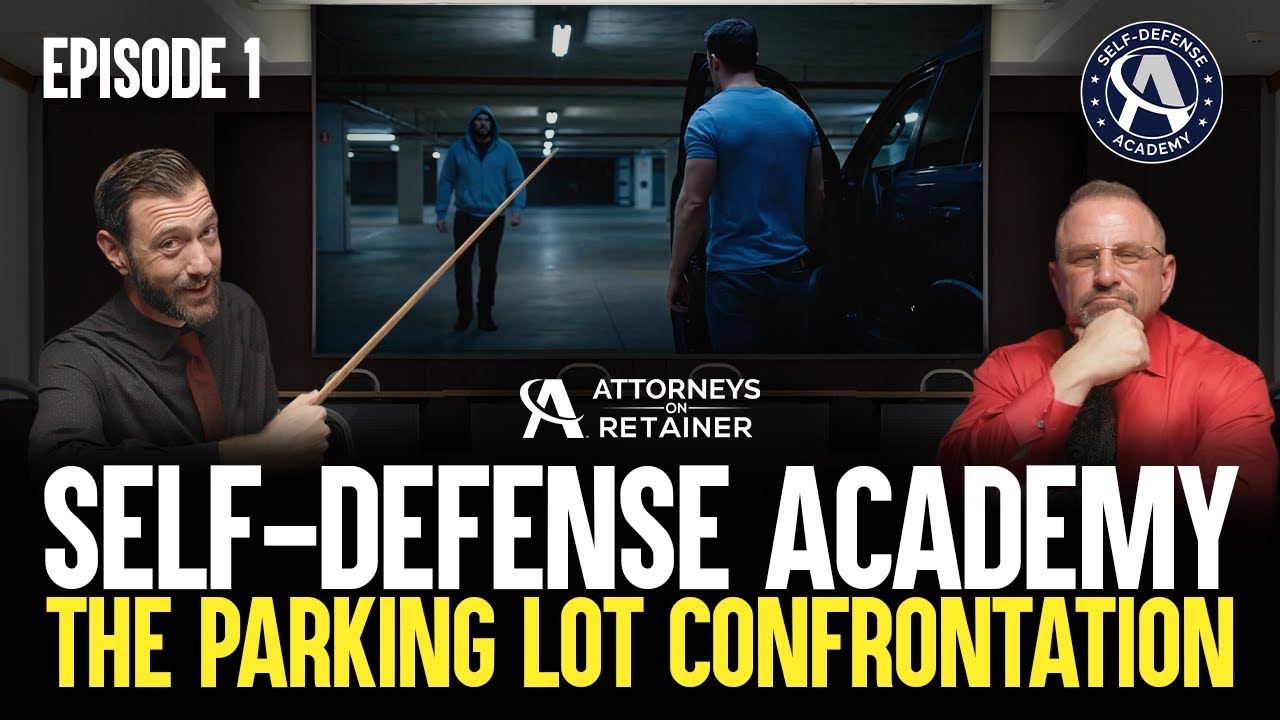Fighting The State Ep. 5: Discovery
June 21, 2024
In every criminal case, the stakes are high—freedom, reputation, and life as you know it could hang in the balance. But the law provides mechanisms to ensure fairness, and one of the most vital is the process of discovery. When you hear the term “discovery,” it may seem like a simple legal term, but it is far more than that. Discovery is the key to preparing a strong defense, avoiding trial by ambush, and ensuring that defendants know exactly what the prosecution has against them. Without it, justice would be a game of chance. Let me take you through what discovery means, why it matters, and how it shapes the entire course of a criminal trial.
Key Points:
- What Is Discovery?
- The Rules of Discovery: Federal vs. State
- What the Prosecution Must Hand Over
- Handling Discovery Disputes and Using Evidence to Fight the State
- The Defendant’s Right to Stay Silent and the Role of Discovery
“The facts of the case are really important. As the lawyer, this is where we figure out how strong the case is.”
What Is Discovery?
Discovery is a key part of a legal case where both sides share information. Specifically, the state must provide the evidence it plans to use against the defendant. In other words, this is the time when we, as defense attorneys, find out what we are up against.
Why is this so important? Without discovery, trials would feel like a surprise attack, with the prosecution keeping everything secret. Our legal system is based on fairness, and it believes that defendants should not be blindsided by evidence during a trial. Discovery helps make sure things are fair and promotes justice.
“The purpose of discovery is to ensure that the state respects our client’s constitutional right to a fair, legal process. We want to avoid a trial by ambush.”
The Rules of Discovery: Federal vs. State
How Discovery Works in State Courts
The rules for discovery, which is the process of gathering evidence, are different in federal and state courts. In our experience, state courts usually have more open discovery rules, allowing more access to evidence than federal courts. For instance, in many states, lawyers can interview witnesses before the trial starts—a right that does not exist in federal cases. This difference can affect how we prepare a defense.
How Discovery Works in Federal Courts
In federal courts, the discovery process is more limited. For example, the Jencks Act controls when witness statements are shared, and these statements are often not given to the defense until right before the witness testifies. It becomes a strategic game between defense attorneys and prosecutors, with both sides trying to reveal as little as possible while following the rules.
“The discovery rules are quite different between federal and state courts. Overall, we usually prefer the rules in state courts.”
What the Prosecution Must Hand Over
One of the most important legal cases related to evidence sharing is Brady v. Maryland. This case set the precedent that the prosecution must give the defense any evidence that could show the defendant is innocent. This type of evidence is called “Brady material.” If the police or prosecution discover anything that suggests the defendant might not be guilty, they are legally required to share that information with us.
In addition to this, discovery usually includes a variety of materials that help us build our case. These materials can include:
- Police reports and crime scene photos
- Videos from body cameras, dash cams, or security cameras
- Interrogation videos, 911 calls, and witness interviews
- Forensic evidence like DNA, cell phone data, or digital reports
- Expert reports from medical examiners, crime labs, or accident investigators
Each piece of evidence is important in deciding whether a case should go to trial, settle with a plea deal, or be aggressively defended if the evidence is weak or flawed.
“The prosecutor is required by the Constitution to give the evidence to the defendant, and there are consequences if they do not follow this rule.”
Handling Discovery Disputes and Using Evidence to Fight the State
During the discovery process, where both sides share evidence, disagreements can happen. Sometimes, prosecutors might take too long to hand over important information or argue that they do not have to share certain evidence. When this happens, we can ask the court to step in by filing a “motion to compel”, which forces the state to give us the evidence we need. These disputes can significantly affect the case, especially when important information is hidden or delayed. We work hard to find anything that could help our defense.
At The Attorneys For Freedom Law Firm, we do not just accept the evidence as it is—we look closely at every detail to find weaknesses in the state’s case. This means reviewing every document, video, and report to spot mistakes or unfair delays. For example, if it takes the state too long to process DNA evidence, we might ask the court to exclude it from the trial because it violates the defendant’s right to a speedy trial. Every piece of evidence is a chance for us to challenge the prosecution and strengthen our defense.
“Receiving the discovery is just the first step, but reviewing and analyzing it for important details is where everything comes together. Discovery is not just about gathering information—it plays a critical role in how we build a strong defense for our clients.”
The Defendant’s Right to Stay Silent and the Role of Discovery
One important part of the discovery process is the defendant’s right to stay silent, which is a major legal advantage. Defendants are not required to give their testimony before the trial, which works in our favor. We get to review all the evidence the state has before deciding whether the defendant should speak. One of the biggest mistakes people make is talking to the police without a lawyer. What they say often ends up being the most harmful evidence against them. This is why we always advise our clients to stay quiet and let us handle the talking.
“The worst evidence often comes directly from what the defendant says. Just shut up.”
Discovery helps shape how we handle the case. The information we get from discovery can help us decide if we should go to trial, negotiate a plea deal, or try to get the case dismissed. If the state’s evidence is weak or incomplete, discovery gives us the chance to push for a better outcome. And if the case goes to trial, knowing the discovery well helps us challenge witnesses and evidence to aim for a not-guilty verdict.
In the pursuit of justice, discovery is a crucial tool, offering much more than just paperwork. It allows for the thorough examination of evidence, revealing both the strengths and weaknesses of a case. Through discovery, defendants are safeguarded from potential prosecution overreach, as it provides the opportunity to challenge evidence and ensure a fair trial.
The Attorneys On Retainer (“AOR”) Program is dedicated to defending clients by fully leveraging the legal process, with a focus on discovery. Our skilled attorneys expertly analyze the evidence, identify weaknesses in the prosecution’s case, and uncover hidden details that could benefit the defense, ensuring that no stone is left unturned.
When you are in a tough situation, like a self-defense case, having a skilled legal team that knows how to use discovery to your benefit is essential. Call 866-404-5112 to join the AOR program and get the legal support you need when it matters most. When facing the state, the right discovery strategy can make all the difference between freedom and conviction.



